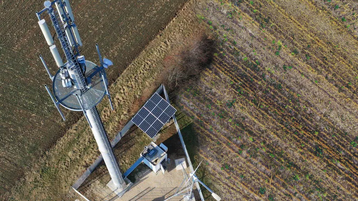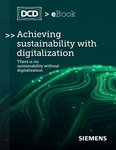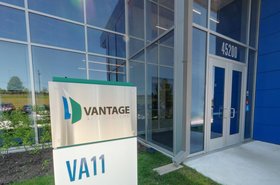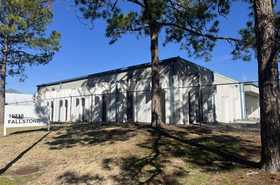Deutsche Telekom and Ericsson have completed a trial showing cell towers can be powered with renewable energy generated on-site.
The German telco and Swedish OEM have conducted a trial at a live cell tower site in Germany where it was able to operate entirely from wind and solar energy generated by on-site panels and turbines.
The site - in the Bavarian municipality of Dittenheim, about 120km north of Munich - has been part-powered by energy from 12 sqm of solar modules installed more than a year ago.
The two companies have since added a wind turbine, capable of providing up to five kilowatts of additional power, as a second renewable energy power source. Initial tests showed that on windy days, more renewable energy could be generated than was consumed by site operations.
The combination of two renewable energy sources means the site can theoretically be operated on a stand-alone basis without utilizing its cable connection to the electrical power grid – assuming the weather allows for it.
“As long as weather conditions support the use of the renewable capabilities, the solution can make a major contribution to powering the site,” the companies said.
Leif Heitzer, SVP Technology Guidance and Economics at Deutsche Telekom, said: “Ensuring an integrated management of clean, efficient and reliable power sources and usage is key for sustainable mobile site operations. Together with innovative partners we explore in trials how we can apply intelligent solutions and capabilities to optimize energy consumption and control at mobile sites.”
The companies said the integration of the two renewable energy sources wasmade possible by Ericsson’s new Power Management System. The single management system jointly controlled the two power sources and the batteries and is integrated into the same management system that controls the Radio Access Network (RAN).
Heather Johnson, Vice President for Sustainability and Corporate Responsibility, Ericsson, added: “At Ericsson, we are committed to working with our customers to support them in cutting their carbon emissions. This partnership is a great example of how we’re achieving this through our best-in-class energy efficient equipment, which can be operated entirely with renewable energy.”
The next project phase will see the development of ‘additional functions for the efficient use of generated energy and storage capacities’. The integration of additional energy sources such as fuel cells will replace the need for diesel generators, which are currently kept in reserve for emergencies.
DT has previously worked with fuel cell manufacturer GenCell. The companies completed a lab test of its hydrogen-based cell earlier this year, and are moving onto live tests in the field.
A number of telcos are looking at both generating and storing renewable power at sites on their networks. In the UK, Vodafone has developed self-powered off-grid mobile towers and plans to roll them out across rural areas of the country.
Vantage Towers recently announced plans to install 750 wind turbines on 52 of its cell towers in Germany. The company said the turbines, from startup Mowea, should cover 100 percent of the towers’ energy needs and power Vodafone equipment on the masts.
Australian telco Telstra has partnered with Horizon Power and its subsidiary Boundary Power for renewably-powered off-grid towers in Western Australia.
In Rwanda, HUI and Annos recently signed agreements with off-grid energy equipment vendor Vanu to install and maintain hundreds of solar-powered network base stations across the country.
Earlier this year, Yahsat signed an agreement with Clear Blue Technologies to deploy its off-grid solar power system across 44 sites across Nigeria and Zambia. Clear Blue has also signed deals with Avanti across Africa, Viasat in Nigeria, and iSAT Africa across four countries on the continent.







